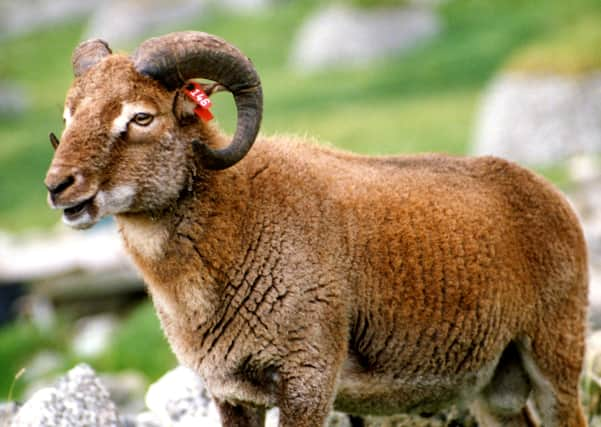St Kilda’s wild sheep may hold secret to pest vaccine


Experts are researching a single cell parasite from St Kilda, the chain of uninhabited islands 40 miles north-west of the Outer Hebrides, that could increase the effectiveness of vaccines for treating livestock diseases.
The harmless Trypanosoma melophagium parasite spreads efficiently throughout the body of an animal.
Advertisement
Hide AdAdvertisement
Hide AdScientists believe that using it to deliver vaccine proteins will offer better host immunity, limiting the need for booster jabs.
A team from the University of Edinburgh, led by Professor Keith Matthews, is working with Roslin Technologies to develop the parasite to host proteins for a wide range of ailments.
They are focusing on creating a vaccine to tackle peste des petits ruminants virus (PPRV), a highly infectious disease that threatens 80 per cent of the world’s sheep and goats, and is a significant problem in Asia and Africa.
St Kilda’s last residents left in 1930 and it is now home to wild Soay sheep, among other wildlife.
Trypanosoma melophagium is spread by sheep ked – a wingless insect – and is usually absent in farmed sheep that are routinely dipped to eliminate such infestations. It is understood there are about two billion small livestock farmed globally, all of which are vulnerable to challenges from a wide range of infectious diseases.
The global animal vaccine market was worth more than £6 billion in 2018, which includes the world’s one billion sheep and 900 million goats.
Prof Matthews said: “Our major advance is that we will be able to immunise sheep against a wide range of pathogens using a harmless organism that they naturally harbour.”
Karen Fairlie-Clarke, innovation and engagement manager for Roslin Technologies, said researchers hoped to establish proof of a concept for the parasite as a delivery system by early next year.
Advertisement
Hide AdAdvertisement
Hide AdFrom there she said she believed it could be three to five years to reach the commercial market.
Scientists have studied wild sheep living in the archipelago of St Kilda for more than 30 years.
Past research has also offered insights into how wild animals age and how they are responding to climate change.
Comments
Want to join the conversation? Please or to comment on this article.